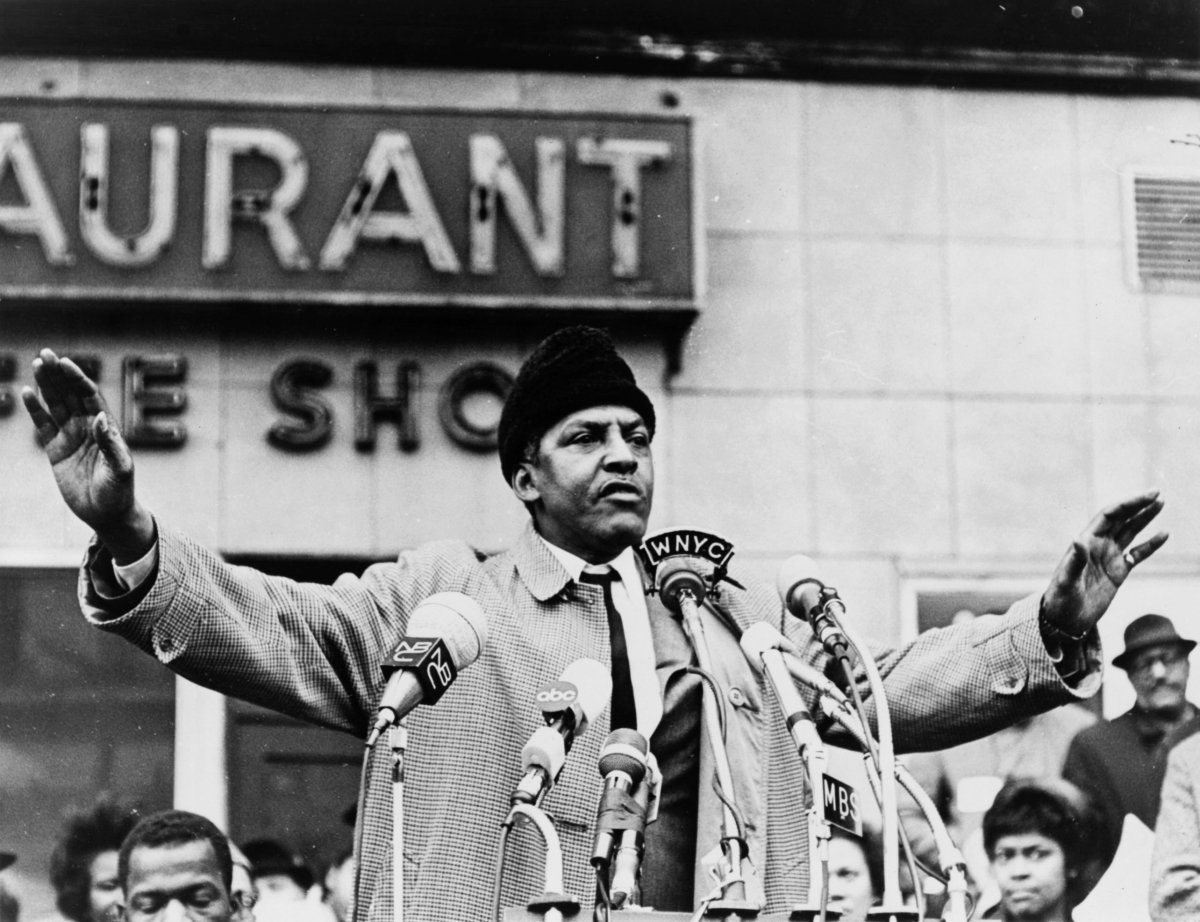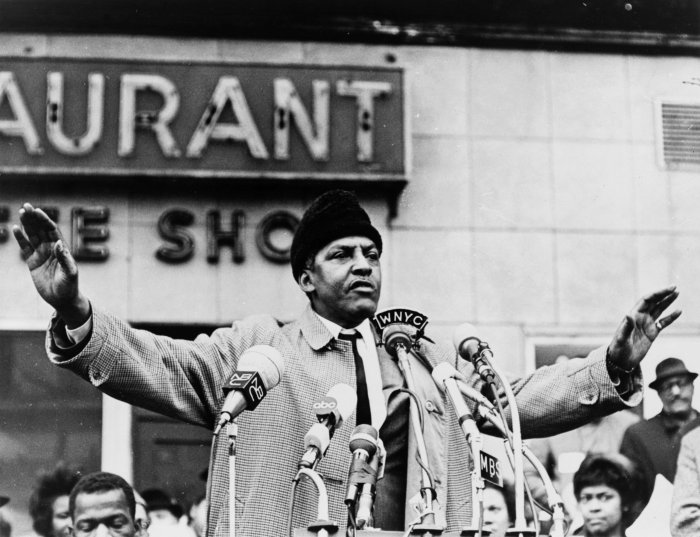By Jerry Tallmer
SIR FREDERICK E. SMITH, Attorney General of England: And as Crown Prosecutor, I would be obliged to see that your rights and prerogatives were fully protected. Anything less on my part would be seen as deplorable.
SIR ROGER DAVID CASEMENT, defendant, prisoner of the Crown: I will have my say?
SMITH: You have my word as a gentleman. All the customary prerogatives of open court will be at your disposal. You have only to waive your right to a court-martial. Agreed?
CASEMENT: Since I don’t recognize the jurisdiction of any British court—civil or military—it is no great matter whether I am hanged or shot. Agreed.
Actually, they hanged him. On August 3, 1916. After he was convicted, of course, by a jury of 12 good men and true. Who took a whole hour—if a hotly contentious one—to reach their verdict. And gentleman Smith, once an Irishman himself, never did give Roger Casement his say—his cry for a free Ireland—in open court. Instead Attorney General Smith brought into the trial, sub rosa, Casement’s “Black Diaries” of homosexual longings and pursuits that had nothing whatsoever to do with the charge of high treason for which supersensitive Sir Roger (1864-1916) was hanged, and everything to do with tainting the minds of press, public, and jurors alike.
Those “Black Diaries” (very light gray one would adjudge them in this somewhat freer day and age) may even have been forged by Attorney General Snith in collusion with Sir Ernley Blackwell, legal adviser to the Home Secretary, and Captain Reginald Hall of Naval Intelligence—gentlemen all, hard-faced, high-placed British gentlemen—working hand in glove with the rather less gentlemanly Bash Thompson, head of Scotland Yard’s CID.
Such smear-job conspiracies in upper governmental circles are, after all, not totally unheard of even now, wouldn’t you say?
To this unschooled colonial, all one ever knew about Sir Roger Casement—from fleeting references in plays by O’Casey, poems by Yeats and such—was that he was an Irish rebel who had oddly been knighted before being hanged for treason.
In fact, as we learn from “Prisoner of the Crown,” a beautiful and stinging play (O’Casey would have loved it) now at the top-flight little Irish Rep on West 22nd Street, the knighting had been bestowed five years earlier in recognition of Casement’s incredibly brave and dangerous youthful work exposing human rights atrocities in Peru and on King Leopold’s rubber plantations in the Belgian Congo. As proof (but suppressed from the trial by Scotland Yard), Casement’s years-earlier photographs of rubber-plantation workers in neck-chains and stocks, plus a deceptively banal shot of another native holding up a single small foot—all that’s left of his 5-year-old daughter who’d been eaten by hungry plantation guards.
In spite of Attorney General Smith’s cynical observation that England had spent far too many centuries “manufacturing Irish martyrs,” here he and England did it again, aided and abetted by Casement’s own arrogance of naiveté, so to speak. The kind of naiveté that led Sir Roger, in the midst of the Great War to End All Wars, to go into Germany’s prisoner-of-war camps seeking to sign up, from among the Irish prisoners who’d been fighting for a king and country not their own, enough staunch lads to form an Irish Brigade that would come back with him to England—he assumed the Germans would gladly let them go—to take up guns and bricks against the Black and Tans in Dublin’s 1916 Easter Rising.
None of this happened, except the bloody wipeout of the Easter Rising. He got no recruits; the staunch lads had had their bellyful of blood and bombs and blinding and death. The Germans shipped him home alone to Ireland on one of their U-boats, debarking him on the shores of the Bay of Tralee, where he was promptly stumbled upon and arrested, and where our play begins.
I say: our play. I should say Richard F. Stockton and Richard T. Herd’s play—they wrote it, each his own version, subsequently sewn together. I should also say Charlotte Moore and Ciaran O’Reilly’s play, they being the founders, artistic directors and constant instigators of Irish Rep, with its great choices and superb productions over all these years, O’Reilly also being the stage director of this particular venture.
Dublin-born Ciaran O’Reilly was 13 years old when “Prisoner of the Crown” broke in at Dublin’s Abbey Theatre in 1972, at which point all he knew about Sir Roger Casement was approximately what I knew—“that he was an Irish patriot who at the time of the Easter Rising had come in from Germany by submarine, and was hanged.”
And the imputed sexual stuff?
“I certainly knew nothing at all about that as a boy. Later, I thought [I knew [“t’ought I knew,” in Ciaran’s golden Dublin tongue] but it wasn’t ’til I started research on this play that I found out what a huge part it played in the trial, a real black mark against British judicial procedure..And after the trial too, when it was carried on with an ugly intensity in the face of a huge, worldwide public support for clemency.”
And those Black Diaries?
The question inspired a laugh, followed by:
“Real or not, you can start a fight with that in any bar.”
Even today, do you think?
“Oh sure, very much so. Just now, in an interview for an Irish newspaper, I said that growing up I didn’t realize Casement was gay. Well, we immediately got many furious phone calls to the theater. ‘How dare you say he was gay? Were you there?’ And so on.”
The play has an urbane, civilized (that is to say, savage) intensity of its own. Casement was, after all, a poet, if perhaps not a very good one, and Smith & Co. certainly knew how to wield the King’s English with sardonic bite.
Quick example, Smith to Hall, the Naval Intelligence officer who wonders whether the delivery-by-U-boat isn’t sufficient evidence in itself: “Good enough to convict. Not good enough to annihilate.” A few minutes later, Smith to legal advisor Blackwell: ”Well, what are we to do with him? Fit out another U-boat and ship him back?”
Blackwell himself, to himself (just after coldly rebuffing a series of contemptuous, furious appeals for visitation rights by Casement’s worshipful young cousin Gertrude Bannister): “What a remarkable woman!”
If the whole trial turned on the Black Diaries, it also all but turned on the matter of a comma – is it there? isn’t it there? — in the decaying parchment of a Treaty Statute of 1351; a debate much similar to one raging a few months ago in the United States Senate over the placement or misplacement of a comma in, I think, the U.S. Constitution.
Casement finally dismisses the whole matter of the comma—or is it a flyspeck?—with: “I tried to be silent, Milord, while the mightiest legal minds of the kingdom haggled like fishwives over a misplaced comma. I came to this high court to have my life choked out of me with a rope – not to be parsed to death by pedants.”
There are other evocations all the way through “Prisoner of the Crown,” notably, of course, with the annihilation (thank you, Mr. Smith) of Oscar Wilde only 14 or 15 years earlier. Those who loved Moises Kaufman’s “Gross Indecency,” a chilling semi-documentary stage reproduction of that trial, will certainly love this one. And then, of course, there is the old warhorse “12 Angry Men,” which takes place, as much of this one does, within the jury room.
“I always love courtroom dramas,” says Ciaran O’Reilly. “But we’ve never before done one, have we, Charlotte? Believe it or not, we’ve had [a script of] this one in our hands for 15 or 20 years, ever since we started Irish Rep.”
Their production not only doubles the assignments of every actor, but quadruples and quintuples some of the jobs, and in one instance, that of Chorus gives Patrick Fitzgerald ten other characters as well. His fellow actors are: Peter Cormican, Emma O’Donnell, Tim Ruddy, Ian Stuart, John Vennema, John Windsor-Cunningham (as Smith). And, of course, Philip Goodwin as Sir Roger David Casement. Better get back in that submarine, Roger. The Easter Rising’s to hell and gone.
PRISONER OF THE CROWN. By Richard F. Stockton. Additional material and original concept by Richard T. Herd. Directed by Ciaran O’Reilly. An Irish Repertory Theatre presentation through July 6 at 132 West 22nd Street, (212) 727-2737.



































